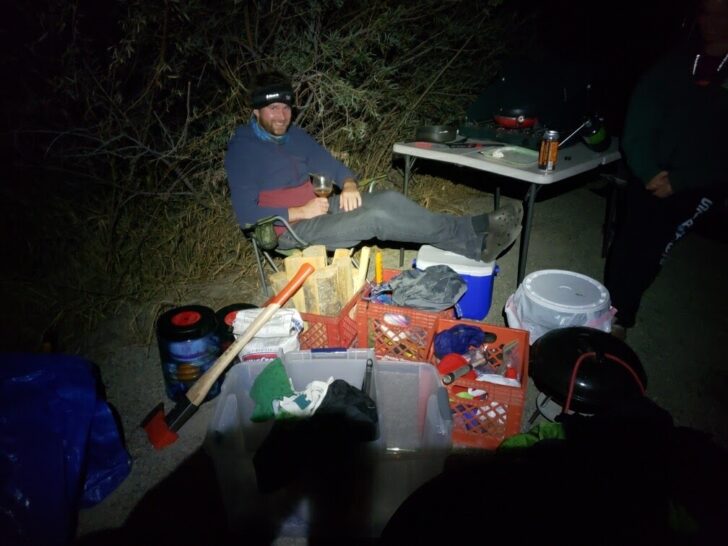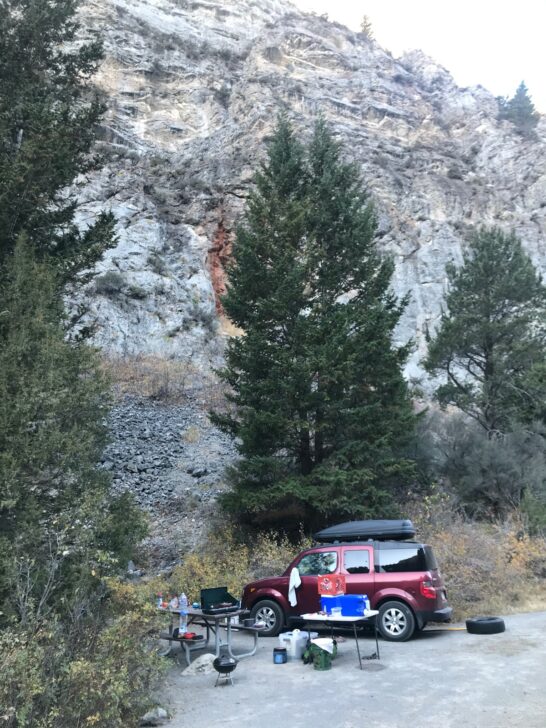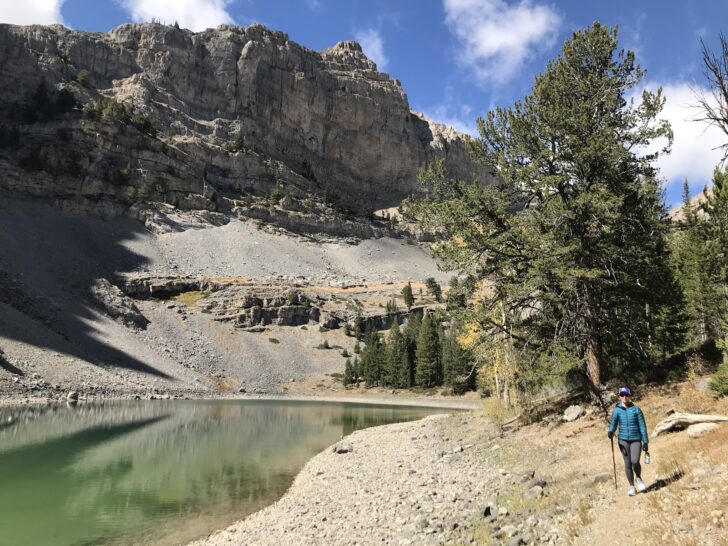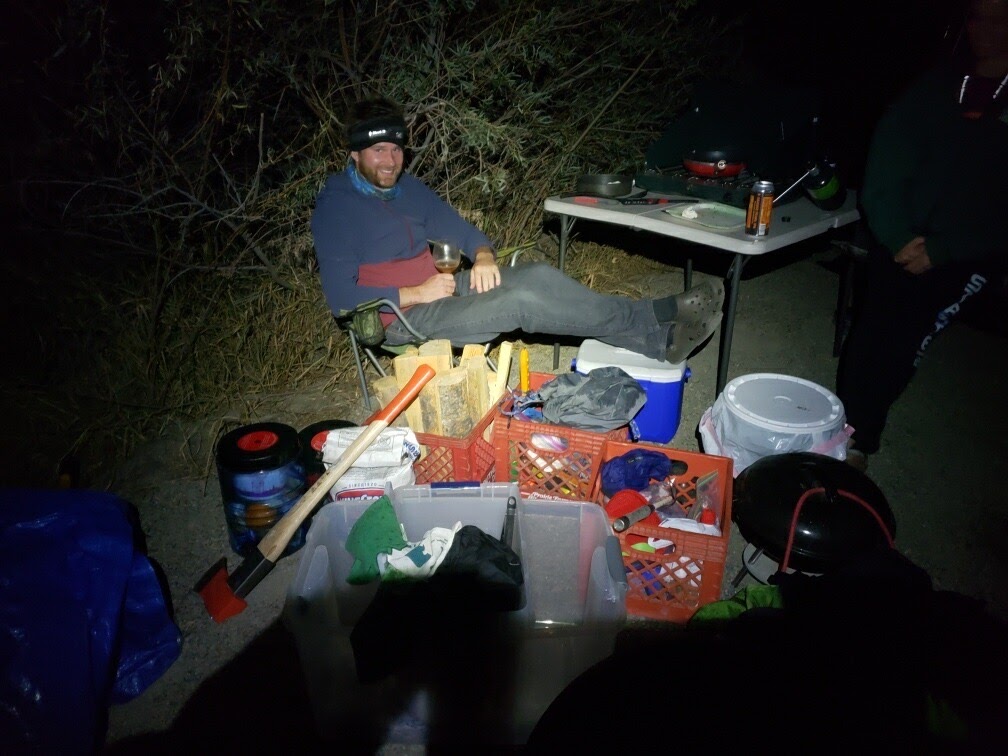Unpacked is a new column from Backpacking Light by outdoor writer, gear tester, and librarian Mark Wetherington. It ranges from book reviews to essays on outdoor ethics and culture. There’s a richness in backpacking that’s rarely reflected in gear reviews and trip reports – this column aims to explore the deeper essence of our hobby with an insightful (and sometimes humorous) approach.
Things are in the saddle,
And ride mankind.Ralph Waldo Emerson, from “Ode, Inscribed to William H. Channing”
After spending an entire morning packing for a climbing, hiking, camping, and hot springs soaking trip in the hinterlands of Idaho at the end of September, I had an episode of Overwhelming Gear Accumulation Distress Disorder (OGADD). Multi-sport trips are perhaps the most common trigger for this syndrome—given that you must assemble gear from a variety of disciplines that often has limited double-duty capabilities—but it can occur in shoulder-seasons as well.
When one finds themselves standing in the dedicated gear room of their home and debating between bringing the 20 F (-7 C) sleeping bag or the 30 F (-1 C) sleeping bag, the inverted canister stove or the regular canister stove, the 9 oz (255 g) down jacket or the 11.5 oz (326 g) down jacket it means that OGADD is often close at hand. Car camping is also a noteworthy catalyst of OGADD as instead of worrying about pushing the limits of your 35-liter pack, the only thing you have to consider taxing is your vehicle’s suspension system.

When sitting around camp after an evening hot springs soak and slowly recognizing that I was almost completely surrounded by gear (see above photo), my companions and I engaged in some humorous banter about just how much stuff gets involved with relatively simple camping trips. To be fair, most of the gear was removed from my Honda Element so my girlfriend and I could sleep in the back, but the situation still had the trappings of ridiculousness. The notion from a Ralph Waldo Emerson poem about things being in the saddle and riding mankind, taken completely out of context courtesy of a few post-soak IPAs, came to mind.
Indeed, sometimes it seems like the gear—or the desire to accumulate more gear—begins to own you, rather than the other way around. Backpacking is an all-consuming passion of mine and has wielded an outsized influence in regard to the jobs I’ve worked, where I’ve chosen to live, and how I spend my free time. However, I’ve noticed that a dark side of that enthusiasm for backpacking can be a passion for consuming—in particular buying the latest and supposedly greatest gear that will allegedly take your backpacking experience to a new level.

I was lucky enough to get disabused of any notion I had of becoming a gear junkie when I worked in an outdoor retail shop a few years after I started backpacking. After unpacking, pricing, stocking, and talking about gear for hours every day, it lost its luster for me; my passion was for getting outside and I realized gear was merely a tool. I liked living in a home, for example, but I would derive little joy from working at a hardware store or discussing the finer points of washers and dryers in online forums. But for some reason backpacking and the gear that allowed me to have such amazing experiences in natural landscapes captivated me in a way that few other things in life did.
I also recognized rather quickly that, with few exceptions, once you have your basic kit dialed in that vastly more pleasure will come from channeling effort into planning trips than looking for places to save 50 grams of weight. In other words, if after you’ve assembled a functional kit you’re spending more time looking at gear specifications instead of maps, guidebooks, or other trip-planning resources then you might want to do some reflection on how you’re spending your free time.

Criticism aside, there are good reasons to have a healthy focus on buying quality gear that is appropriate for your hobbies. For one, it tends to make those hobbies more fun since you’re not being held back by equipment deficiencies—you have only yourself to blame for not climbing more difficult routes, not putting in more miles, or not catching wily trout at a subalpine lake. Additionally—and this is far and away my favorite part of all the gear I’ve accumulated over the years—is that it can allow you to share the experience more easily with others (i.e. by loaning them gear) or make the experience more enjoyable by getting fancy from time to time.
On the recent trip which inspired this piece, I was able to cook meals that would’ve been well-received at a backyard cookout but which hit the spot even more after a day of climbing or before a day of hiking. The sleeping system I use in the back of my car when car camping is almost as comfortable as my bed at home.
This isn’t exactly a new notion, and I give much credit to Paul Magnanti, who has covered it well on his blog over the years, but given that a season that emphasizes the buying, giving, and receiving of stuff is in full swing (I received no less than three emails about sales from gear companies while writing this piece) it seems a timely subject for Unpacked. While it’s tempting to give gear to yourself or others as a way to celebrate the holiday season, it’s worth it to take a step back and ponder other options.

Far and away the best gifts you can give to yourself, or to others, is time or knowledge. Planning a trip with a friend or family member and spending that time with them is infinitely more valuable and memorable than any item on a 2020 Gear Guide. Making a conscious effort to learn a new skill—like dehydrating your own food, route planning, or gear repair—will likely improve your experiences long after whatever piece of gear you buy has lost its shine. Sharing information with a friend about a stellar campsite, off-trail waterfall, or trout-filled lake is more heartwarming than any gift card. Gear certainly helps you achieve trips that make memories, but unless you get out there and use it the only thing gear will remind you of is buying it. And what excitement or enrichment is there in that?
What I remember most about the trip to Idaho is climbing with friends, eating delicious food, a beautiful hike, crisp September air, and a roadside hot springs soak to break up the drive back home. And, of course, the good-natured chiding from my companions about the inordinate amount of stuff I brought along to pull it off.
Related Content
Columns
- More Unpacked by Mark Wetherington
Reviews
- Read Mark’s recent review of the REI Co-op Flash Air 2
Skills
Forums
DISCLOSURE (Updated April 9, 2024)
- Product mentions in this article are made by the author with no compensation in return. In addition, Backpacking Light does not accept compensation or donated/discounted products in exchange for product mentions or placements in editorial coverage. Some (but not all) of the links in this review may be affiliate links. If you click on one of these links and visit one of our affiliate partners (usually a retailer site), and subsequently place an order with that retailer, we receive a commission on your entire order, which varies between 3% and 15% of the purchase price. Affiliate commissions represent less than 15% of Backpacking Light's gross revenue. More than 70% of our revenue comes from Membership Fees. So if you'd really like to support our work, don't buy gear you don't need - support our consumer advocacy work and become a Member instead. Learn more about affiliate commissions, influencer marketing, and our consumer advocacy work by reading our article Stop wasting money on gear.




Home › Forums › Unpacked: When Gear Owns You